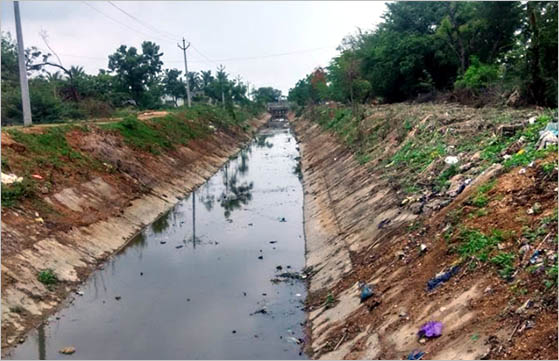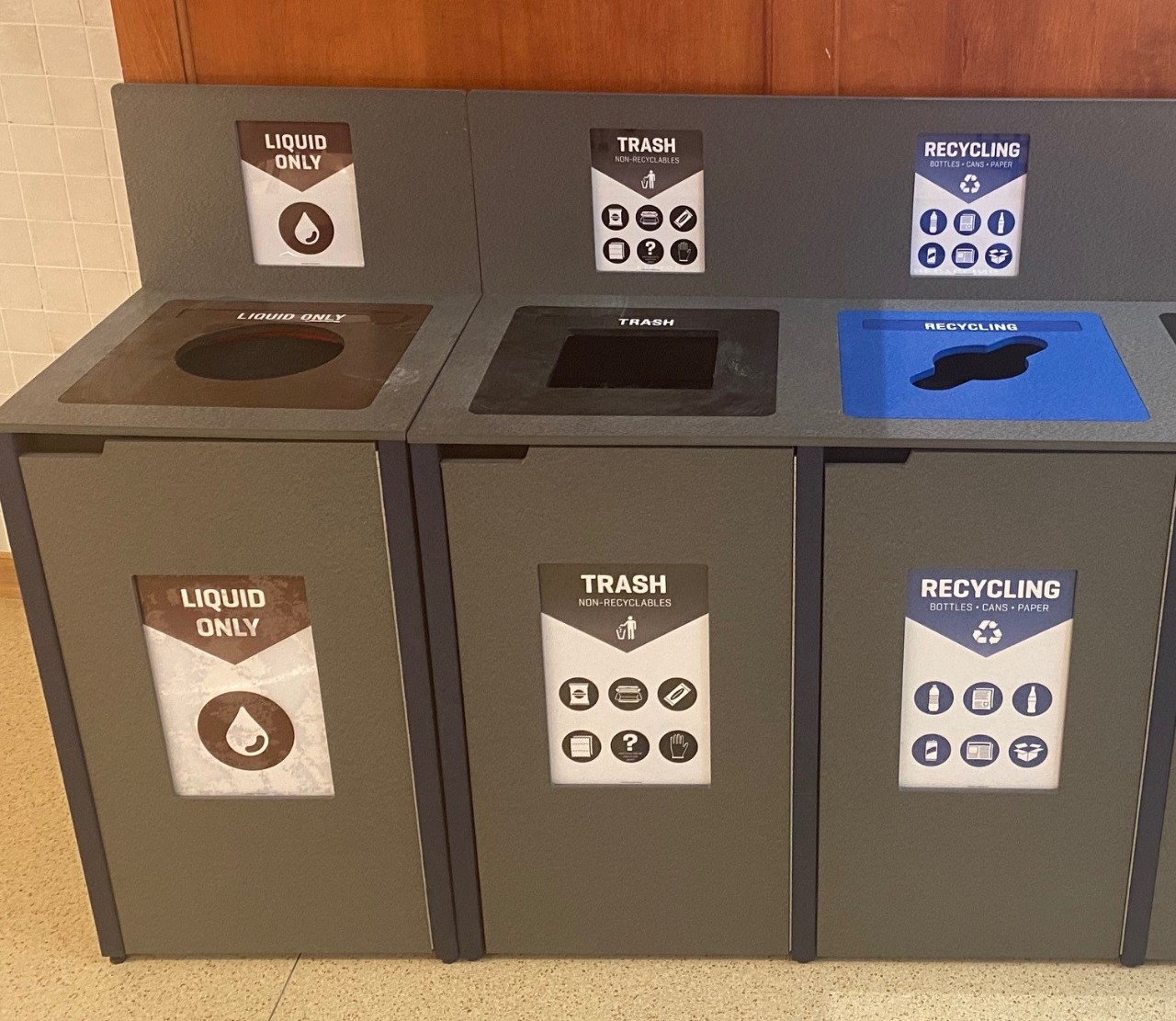Innovative Industrial Wastewater Treatment Solutions: Shielding the Environment
Innovative Industrial Wastewater Treatment Solutions: Shielding the Environment
Blog Article
Understanding the Comprehensive Refine of Fluid Garbage Disposal: Finest Practices and Environmental Impact Factors To Consider
The management of fluid garbage disposal is a complex concern that needs a detailed understanding of different ideal techniques and their connected environmental effects. From the kinds of liquid waste created to the approaches employed for collection, treatment, and final disposal, each step plays a crucial function in protecting communities and public health. As regulative standards advance and modern technology developments, the conversation around these procedures becomes significantly significant. What effects do these modifications hold for future sustainability efforts, and just how can stakeholders guarantee that they are appropriately attended to?
Sorts Of Fluid Waste
Comprehending the numerous types of liquid waste is essential for effective administration and disposal techniques. Liquid waste can be generally classified right into a number of types, each requiring distinct handling and therapy methods.
Industrial fluid waste often includes dangerous materials, consisting of hefty steels, solvents, and chemicals, produced during making processes. These wastes necessitate rigorous regulatory conformity to safeguard human wellness and the atmosphere. Domestic liquid waste primarily refers to wastewater created from homes, including sewer and greywater, which, although less hazardous, can still present significant dangers if improperly managed.
Agricultural liquid waste, including overflow from farms, usually contains plant foods and chemicals that can bring about ecological destruction if not treated effectively. Clinical fluid waste, created from healthcare centers, includes polluted fluids such as bodily liquids and chemicals, needing specialized disposal techniques to stop infection and ecological contamination.
Finally, oil and oil waste, commonly created by restaurants and automobile sectors, can create severe clogs in sewage system systems if not handled effectively. Understanding these classifications promotes targeted approaches for therapy, conformity with guidelines, and reliable disposal approaches, eventually advertising environmental sustainability and public health and wellness safety and security.

Collection Approaches
Reliable collection methods are important for the proper administration of fluid waste, ensuring that it is collected safely and effectively before therapy or disposal. Different methods are utilized depending on the type of fluid waste produced, the volume, and the certain features of the waste.
One common technique is making use of dedicated collection tanks or sumps, which are developed to record liquid waste at the resource. These systems often integrate pumps that help with the transfer of waste to larger storage space containers or therapy facilities. Furthermore, mobile collection units outfitted with vacuum technology are employed in scenarios where waste is produced periodically or in hard-to-reach areas.
For industrial settings, closed-loop systems can successfully lessen spills and leakages, permitting the recuperation and reuse of fluid waste. It is additionally vital to train employees on correct collection procedures to minimize dangers connected with hazardous materials.
Moreover, carrying out routine maintenance timetables for collection tools ensures optimum performance and safety and security. The combination of advanced surveillance systems can enhance collection performance by giving real-time data on waste levels and potential risks. In general, effective collection techniques are fundamental to sustainable liquid waste monitoring techniques.
Therapy Processes
Treatment processes play a vital role in the management of fluid waste, changing potentially harmful materials into reusable sources or risk-free effluents - liquid waste disposal. These processes can be generally categorized right into physical, chemical, and biological techniques, each tailored to attend to specific pollutants present in the waste stream
Physical treatment methods, such as sedimentation and filtering, job by getting rid of put on hold solids and particle issue. These methods are commonly the very first step in the therapy get more chain, efficiently reducing the lots on succeeding processes. Chemical therapies entail making use of reagents to reduce the effects of damaging substances, precipitate heavy steels, or oxidize natural pollutants, therefore enhancing the security of the effluent.
Organic treatment processes, including turned on sludge systems and anaerobic food digestion, take advantage of the all-natural capacities of microbes to deteriorate raw material. These approaches are particularly efficient for wastewater including eco-friendly pollutants. Advanced therapy modern technologies, such as membrane filtration and progressed oxidation procedures, are significantly utilized to achieve higher levels of purification.
Including a mix of these treatment methods not just ensures compliance with governing requirements however additionally advertises ecological sustainability by recovering beneficial resources from liquid waste.
Disposal Options
How can companies ensure the secure and accountable disposal of liquid waste? Reliable disposal choices are important for guarding public health and wellness and the environment. The key techniques consist of land treatment, incineration, and disposal complied with by discharge right into metropolitan wastewater systems.
Land disposal entails the cautious control of fluid waste in designated garbage dumps, guaranteeing that it does not leach right into bordering dirt or water. Incineration, on the other hand, subjects fluid waste to high temperatures, converting it right into ash and gases, which need appropriate filtering to reduce emissions. This technique is ideal for unsafe wastes that can not be treated via typical methods.
In cases where fluid waste can be dealt with, organizations may choose biological or chemical treatment processes to reduce the effects of damaging elements prior to releasing the treated effluent into local systems. This route usually aligns with governing demands, making This Site sure that the effluent satisfies safety and security criteria.
Ultimately, organizations must carry out detailed analyses of each disposal option to determine its feasibility, thinking about elements such as waste composition, governing compliance, and potential threats to wellness and the environment. By choosing appropriate disposal techniques, organizations can add to an accountable waste monitoring technique.
Environmental Effect
The environmental influence of liquid garbage disposal is an important factor to consider for organizations seeking to lessen their eco-friendly footprint. Incorrect disposal techniques can bring about considerable contamination of water resources, soil deterioration, and negative results on local communities. For circumstances, hazardous fluids can seep into groundwater, posturing risks to alcohol consumption water materials and aquatic life. Furthermore, the discharge of neglected or improperly dealt with waste right into surface waters can cause eutrophication, resulting in oxygen depletion and the subsequent fatality of fish and various other microorganisms.

To minimize these influences, organizations must take on finest techniques such as carrying out strenuous waste treatment processes, promoting recycling and reuse, and adhering to governing standards. By taking a positive technique to fluid waste monitoring, entities can substantially minimize their ecological footprint while supporting sustainable advancement goals. Inevitably, a thorough understanding of the ecological effects connected with liquid garbage disposal is crucial for educated decision-making and liable stewardship anchor of natural resources.
Final Thought
Effective monitoring of fluid waste is vital for securing ecological stability and public health. By embracing ideal practices in therapy, collection, and disposal, along with adherence to governing requirements, the possibility for unsafe contamination of ecological communities can be dramatically decreased. Constant developments in innovation and processes add to lasting waste monitoring initiatives. Ultimately, a thorough understanding of fluid garbage disposal not only reduces environmental impacts yet also promotes a dedication to liable resource administration and environmental stewardship.
The management of fluid waste disposal is a diverse concern that needs an extensive understanding of various ideal practices and their connected ecological effects. From the kinds of liquid waste produced to the methods used for collection, treatment, and final disposal, each step plays an important function in protecting environments and public wellness.The environmental effect of liquid waste disposal is an essential factor to consider for organizations seeking to minimize their eco-friendly impact. Inevitably, an extensive understanding of the ecological influences connected with fluid waste disposal is crucial for educated decision-making and liable stewardship of all-natural resources.
Inevitably, an extensive understanding of fluid waste disposal not just alleviates environmental impacts but also promotes a dedication to responsible source administration and ecological stewardship.
Report this page